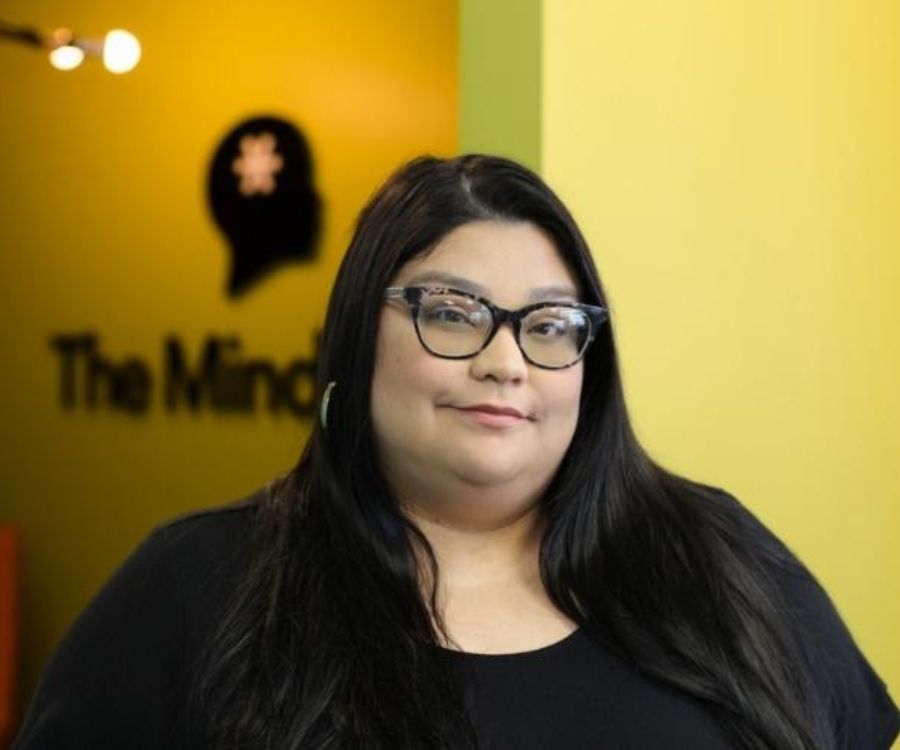How Our Entrepreneurship Core Value Empowers Families
By Monica Casillas, Manager of Operations
When my family moved to Indianapolis, there was only one school that offered specific English as a Second Language (ESL) programming. My assigned neighborhood school didn’t have ESL classes and nobody spoke Spanish.
So I was fortunate to be able to go to the school that did have ESL programming, even though it wasn’t my assigned school. But what nobody told me, or my parents, was the process of getting there.
They just told us to catch the bus. They did not tell us that I’d get on one bus in the morning, arrive somewhere, transfer to a second bus, and then finally arrive at my school. I was in first grade. Despite this hiccup, I did like the school I attended. The people there, both students and staff, looked like me and reflected my background.
Still, those early months at that school were difficult. I came in with no knowledge of how to speak, read, or write English. It took me three months to understand what was being said during class and to ask basic questions.
Since I knew only Spanish, my school only let me take ESL classes and not the bilingual classes. That may have been necessary at first, but even when I had the choice to opt-out in fifth grade, I noticed they encouraged me to stay in ESL classes. By that time though, I was already bilingual and fluent in reading, writing, and speaking English.
Finding Out Not All Schools are Equal
Ultimately, my education experience had its bumps but largely worked out. I made it through and didn’t feel held back by forces beyond my control. I honestly didn’t think about or care much about education until I had my own kids.
For instance, I had no idea that Indiana gave letter grades to schools around the state as a means of communicating school quality to families. One day, I was out at a community fair and I picked up a booklet that listed the different Indianapolis schools. Curious, I flipped through until I found the school my daughter attended.
It was rated F. And no, the F did not stand for fantastic. My first thought was, “How could my daughter’s school be failing? It was open. Wouldn’t failing schools be closed?” Up until then, I honestly thought every school was good. I had no reason to believe otherwise.
That moment is when I first understood that inequity was pervasive in our education system. Not all kids were being set up for success. My response to what I learned about my daughter’s school from that booklet was to move my kids to a new school district because at the time that was the easiest way for me to leverage school choice as a parent.
Each of My Children are Unique; Our School Choices Reflect That
It matters to me to send my children to schools that will meet their needs. Each of my children is so different. While it’s less convenient, that means I send each of them to a different school. It has made such a difference for each of them as I see them nurtured and developed by an environment that works for them.
But I recognize I am only able to leverage that choice because I accessed the knowledge necessary to understand my choices in the first place. That knowledge gap for families is something I witnessed on a regular basis when I worked for schools doing community engagement work. Ensuring families know their options is vital.
My work in schools eventually led me to getting connected to The Mind Trust. Being at The Mind Trust has reaffirmed my belief about the importance of letting families choose the school that will best serve their needs.
We push for what is best for students. Hearing the stories of students whose lives are changing because of the work of schools that The Mind Trust supports, like BELIEVE Circle City High School, reminds me that we are living our vision and mission in powerful ways.
Connecting Entrepreneurship to Family Empowerment
My favorite of our core values are Community and Entrepreneurship. With entrepreneurship, not everyone thinks about that when they think about education. Or if they do, they think of it pejoratively and conflate it with schools becoming more like businesses.
Our Go Farther Literacy Fund exemplifies that entrepreneurship value. That program empowers parents and community members to be innovative and solve problems using solutions they have designed for themselves.
Many of the injustices in education and American society more widely are not things of the past. In many ways, they have continued into the present and still need to be defeated. I am glad to work somewhere that recognizes these inequities and faces them head-on.
Monica Casillas
That is powerful and I was thrilled to see more Latino families applying during this last round. To this day, the Latino community is often forgotten or held back from engaging in education initiatives because of barriers like documentation status, the devaluing of non-English languages, or just discrimination from an education system that doesn’t view us as equally valuable.
I know that program didn’t exist when my parents moved here and I was entering first grade. I’m glad it exists now and I see it as just one example of how we are tackling inequity in education.
Because that’s another thing I’ve realized since joining The Mind Trust. Many of the injustices in education and American society more widely are not things of the past. In many ways, they have continued into the present and still need to be defeated. I am glad to work somewhere that recognizes these inequities and faces them head-on.

